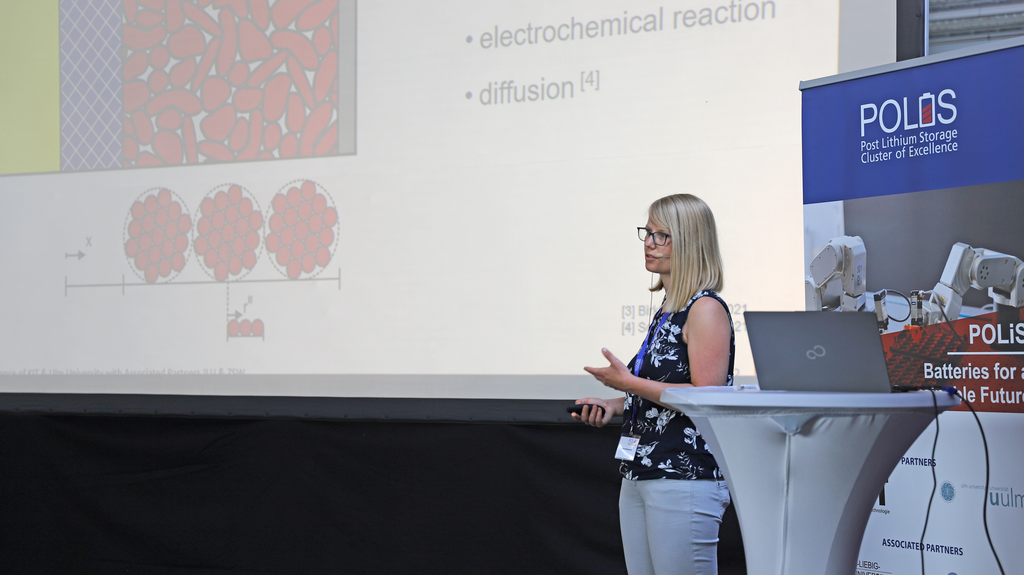Post-Lithium Battery Research
Batteries are one of the key technologies of the next decades. Lithium-ion batteries enable electric-driven transportation and will substantially contribute to the energy transition (“Energiewende”), providing intermediate storage of electric energy for efficient use of intermittent renewables such as solar or wind in decentralized facilities. However, the used battery chemicals are not sustainable in the medium and long term. The Cluster of Excellence POLiS develops the necessary new battery materials and technology concepts for efficient and sustainable storage of electrical energy. Post-lithium batteries based on sodium, magnesium, calcium, aluminum and chloride ions have the potential to store energy electrochemically more efficiently, be safer and offer a more cost-effective, long-term option for mass applications such as stationary and mobile electrochemical storage.
As a PhD student in POLiS, Johanna Naumann investigates novel electrode structures. In this case, the storage material, the so-called active material, has a hierarchical setup. In contrast to classical electrodes, the active material particles are nanoporous. This results in a larger electrode surface area for the electrochemical reaction as well as shorter diffusion paths in the active material, which enables fast charging and discharging of the cell. Johanna uses numerical models to demonstrate the influence of electrode structure on the cell performance. At the conclave, she presented on this topic in front of the approximately 140 members present. Together with two POLiS colleagues, she also gave a statement on current trends in post-lithium research. The video can be found on the POLiS homepage at: https://www.postlithiumstorage.org/de/news-events/annuel-conference

